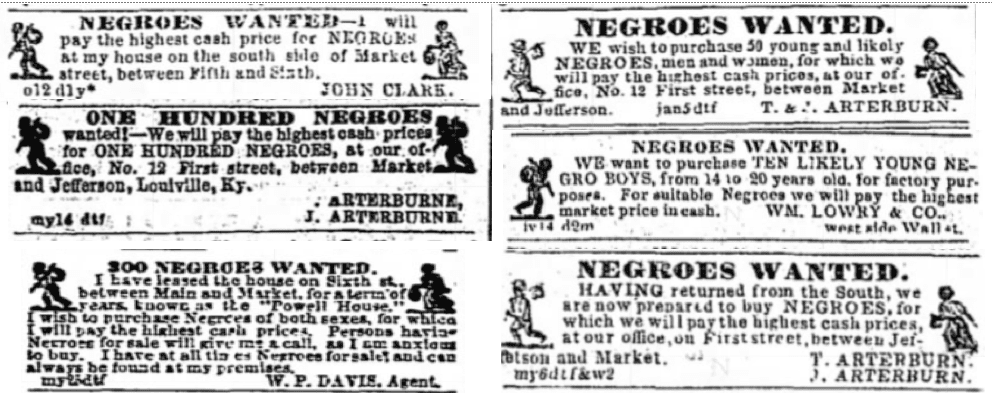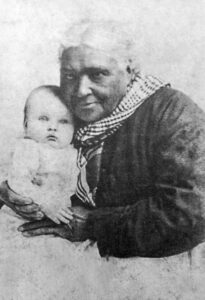The Reckoning: Facing the Legacy of Slavery in America
“The Reckoning” is a public radio and podcast series which traces the history and lasting impact of slavery in America by looking at how the institution unfolded in Kentucky.
In 2020, Louisville emerged as what the Washington Post called “the epicenter of the national movement for racial justice.” The killing of Breonna Taylor by Louisville police set off months of nightly protests that put the city, and the state of Kentucky, into the spotlight worldwide.
Kentucky stayed in the Union during the Civil War, seemingly on the right side of the battle over slavery, but the truth is more far more complex. Many white Kentuckians fought to hang onto slavery and the wealth the enslaved provided. In the years that followed, white citizens campaigned to downplay slavery’s role in the state’s economy and culture while working to deny Black citizens a seat at the table.
As part of this story, we meet members of two families who were deeply affected by the institution of slavery. One is a prominent white family descended from both a major slave trader and one of Kentucky’s largest slave owners, the other an African American family who descend from two of the people enslaved by the white family.
These two families reflect how slavery touched nearly every person, place and institution in America, and how the country still needs to reconcile this painful past with the present — to recognize and reconcile the impact slavery has had on the health, wealth and safety of African Americans.

Enslavers in Kentucky and elsewhere prospered in many different ways from their ownership of enslaved people—from their free labor, as commodities to be borrowed against, and from the profits made in buying, selling, and leasing them. However, many of their present day descendants have little or no knowledge of their family’s connection to slavery. This history was largely hidden in the recesses of their collective memory.
One of the things we examine in this series is how our country has developed such a profound misunderstanding of its own history. In the aftermath of the Civil War, a coalition of Confederate veterans and their family members began to promote an alternative history of slavery and why the war was fought that came to be known as the Lost Cause. Kentuckians were central to this effort, and worked tirelessly to publish books, text books, and periodicals that deeply affected the national narrative about slavery and the Civil War to this day.
We have interviewed numerous writers, historians, social scientists, legal scholars, and others who can help us better understand the ways that slavery was integral to the United States and its economy, how racial violence and oppression were used to control African Americans in the decades after slavery, and how historians and educators were affected by the mythology of the Lost Cause. In addition, we have spoken with epidemiologists and public health scholars to better understand how this history affects racial disparities with COVID-19 outcomes.
The final product is a series of four hour-long specials for public radio, as well as a regular podcast, available on Apple Podcasts, Google Podcasts, Spotify, and many other podcasting platforms.
The series is produced by Dan Gediman, who has been producing award-winning programming for public radio for over 35 years, including the NPR series This I Believe, the Audible documentary series The Home Front: Life in America During World War II, and 50 Years After 14 August, which won the duPont-Columbia award, one of the highest honors in broadcasting.
Loretta Williams is a Peabody award-winning reporter, producer and editor interested in stories that delve into America’s cultural divides. She’s been a producer and editor for NPR and SoundVision Productions. Since 2008 she’s been a freelance journalist working on a wide range of projects such as ISeeChange.org, the Scene on Radio from the Center for Documentary Studies and the Us & Them podcast. She is the editor for The Reckoning and brings the perspective of a descendent of those who were (mostly likely) enslaved.
Nancy Rosenbaum is a producer on The Reckoning. She is an award-winning audio journalist and documentarian whose work investigates the connections between history, culture, race and identity.
Dr. Carly Mutterties, executive director of the Kentucky Council for the Social Studies, and University of Kentucky education professor Dr. Kathy Swan have served as educational consultants.
Acclaimed Louisville composer Jecorey “1200” Arthur composed the theme music for the series.
Major funding for this series was provided by the Community Foundation of Louisville, the Norton Foundation, the Snowy Owl Foundation, Eleanor Bingham Miller, Victoire and Owsley Brown III, Emily Bingham and Stephen Reily, Nina Bonnie, and Gill and Augusta Brown Holland.
*According to the University of Richmond’s American Panorama Project, during the height of the cotton boom between 1850-1860, Kentucky exported over 37,000 enslaved people, making it the fourth highest state in terms of exporting enslaved people to the Deep South.
How to Subscribe to The Reckoning Podcast
You can subscribe to our podcast by following these links to Apple Podcasts (for iPhones or iPads), Google Podcasts (for Android phones and tablets), and Spotify. For any other podcasting services (Stitcher, Amazon Music, etc.), search for The Reckoning: Facing the Legacy of Slavery in America or paste this RSS feed into the app: https://feed.podbean.com/reckoningradio/feed.xml. You can also listen to all episodes of the series on our YouTube channel.







